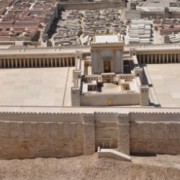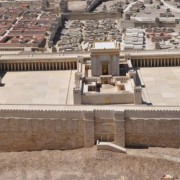When the “perks” become ultimate, the ultimate becomes a “perk”
A few months ago, (May 4, 2012) I wrote a post about my conviction that the U.S. Military, as it exists today, provides an amazingly accurate analogy for what it means to be a follower of Jesus.
In this post, I’d like to take hold of the U.S. Military analogy one more time, but now I’d like to broaden the scope of the analogy from the individual believer’s walk with the Lord to the ultimate purpose Jesus has for His church that He builds, (hint: He was, is, and always will be The Missionary God).
I’d like to begin by asking a multiple choice question regarding any and all branches of the U.S. Military:
Which one of the following is the ultimate reason the U.S. Military exists? (Only one answer is correct!)
A. To provide each member with specific vocational training and vocational work that will make their post military career much more likely to be successful?
B. To provide the opportunity for career advancement, travel, and financial resources for further education upon completion of their term of service?
C. To provide the opportunity for travel, first class recreation, decent housing, and all medical and dental needs for its members and their immediate family?
D. To willingly obey the Commander-in-Chief of the United States when he deems it necessary for the good of the U.S. that the military actively engage an enemy of this country at any location necessary, even if by doing so, that member of the military might be required to give up his/her own life.
Clearly, although the U.S. Military provides everything listed in A,B, and C, above, those things are not the reasons why the U.S. Military exists. Those are all good things, and the U.S. Military spends literally billions of dollars to ensure that those things are provided for its members. But really, those things are more like the “perks” that are provided to those who willingly choose to submit themselves to the ultimate purpose of the U.S. Military, which is letter “D”.
I vividly remember the day that I “swore in” to the U.S. Army, at the age of 17, on May 29, 1976, (a month after I graduated high school). All of the cool advertising and various marketing tools used by the recruiter focused on A, B, and C. And it sure sounded like those were great reasons to join. But at the AFEES station in Los Angeles on that day, the reality of what I was really signing up for hit me like a ton of bricks as I raised my right hand and repeated the oath of obedience, voluntarily giving over to the Commander-In-Chief at that time, (Gerald Ford…soon to be Jimmy Carter), the authority to send me anywhere he deemed necessary even if it meant my life could realistically be brought to an end in the process.
Because of what I understood that I was doing on that day, even at that young age, I’ve always been bothered by those who have joined the U.S. Military as part of the reserves or the various National Guard units. Unless I’m mistaken, they all “swore in” too, taking the same kind of oath that I did. And because that is true, it irritates me to no end that when the wars of the last 12 years took place and they were called upon to transition to active duty and be deployed, a large number of them complained, saying something to the effect of “this isn’t what I signed up for!” Wrong…its exactly what they signed up for!
Where did these complaining pseudo-soldiers/sailors/airmen go wrong? They joined for the “perks” and were convinced that the “perks” were the reason the military existed, even though they actually did “swear in” and take the oath. For some reason, they never actually understood or believed that the purpose of the U.S. Military wasn’t ultimately or primarily for their own benefit.
Might there be an application here to the local church and it’s members? I’m convinced there is.
Have local churches, by over-emphasizing the various ministries they offer for the good and the growth of their own members, actually contributed to a foundational misunderstanding by their own members of the ultimate reason for the church’s existence? I think so.
Have the leaders of local churches inadvertently communicated to their members that the “perks” of being a member of God’s Kingdom and a part of their local church are what is ultimately important and thereby relegated the actual ultimate reason to a “perk” that the members of the church have the option to participate in or not? Again, I think so.
And if the above two observations have any validity, might it not also be valid that the pastors and church leaders have contributed and communicated these things because they themselves believe the “perks” are what’s ultimate?
I’ve probably stirred enough irritation with this post so I’ll shut it down for now. But I will expand on these things in my next post by spending a bit of time pondering U.S. Navy aircraft carriers and some principles they operate by that perhaps pastors and church leaders can learn from.










